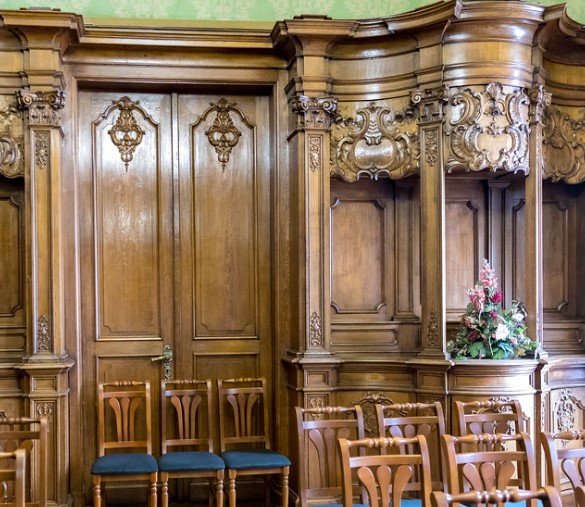Medea, played with quiet determination by Salome Demuria, is a Georgian immigrant scraping together a living in Saint Petersburg. Her trade? Smuggling antique Georgian furniture to sell in Russia. This isn’t just a business; it’s a lifeline—a way to keep her culture and identity alive in a place increasingly hostile to her people.
When she purchases a dilapidated apartment, it comes with an unusual caveat: Vadim, the irritable elderly former owner, refuses to leave. Sergey Dreyden’s performance as Vadim is layered with bitterness and hidden softness, making the dynamic between these two unlikely housemates both tense and strangely touching. Their interactions oscillate between confrontation and cautious camaraderie, a mirror of the larger cultural clash outside their door.
In a city that often feels as frigid as its weather, their shared space becomes a metaphor for reluctant coexistence. The peeling walls and sagging furniture echo their own struggles, adding a tactile layer of melancholy to the film’s visuals.

History’s Shadows Loom Large
Russia’s deportation of ethnic Georgians in 2006 casts a long shadow over the narrative. Glurjidze doesn’t just tell Medea’s story—she weaves it into the fabric of a broader social crisis. The film’s pacing slows at times to linger on moments of isolation and despair, reflecting the alienation felt by thousands of deported Georgians.
This isn’t a history lesson, though. The political backdrop informs the characters without overwhelming their personal journeys. Medea and Vadim’s uneasy alliance feels like a microcosm of the fractured relations between their nations, brought to life with nuance rather than heavy-handedness.
- The film nods to historical context without excessive exposition.
- Emotional weight is carried through visuals rather than dialogue.
- Both leads offer subtle, moving performances that ground the story.
Cinematic Elegance and Emotional Weight
Visually, The Antique is breathtaking. The wintry tones of Saint Petersburg, combined with the meticulous framing of its crumbling interiors, create a canvas that’s both stark and rich. Glurjidze’s collaboration with cinematographer Goga Devdariani pays off in spades, with every frame evoking a sense of time slipping away.
The music, too, adds depth. Its sparse, mournful tones never intrude but rather enhance the film’s introspective mood. It’s a delicate balance that underscores the tension between Medea’s longing for her homeland and her efforts to forge a future in a foreign land.
A Complicated Journey to the Screen
The Antique faced its own set of hurdles. Initially pulled from its Venice Film Festival premiere due to a copyright dispute—a move the filmmakers suggest was politically motivated—it eventually found its way back to the Lido. This backstory adds an extra layer of defiance and urgency to its themes.
While it’s hard to say if the controversy will influence its reception, it’s clear that the film’s message resonates. As Georgia’s submission for the International Oscar, The Antique carries with it the weight of a nation’s collective memory and a filmmaker’s personal vision.
